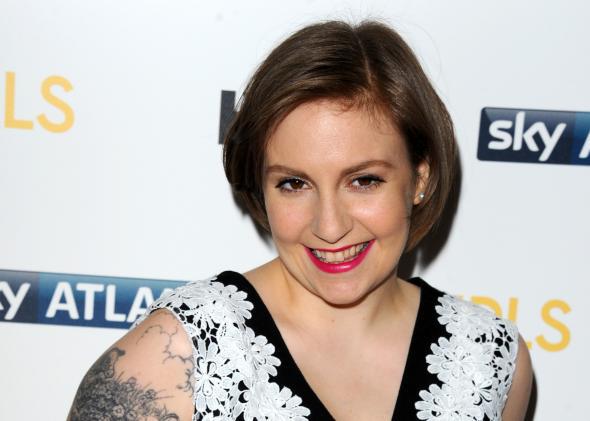Lena Dunham has responded to the outcry about her digitally altered Vogue cover and photo shoot, though she doesn’t explicitly mention Jezebel’s $10,000 call for unretouched images from the spread (answered this morning, with more of a whimper than a bang). On tour in Paris on Friday, the actress/director/writer/voice of her generation told Slate France:
I understand that for people there is a contradiction between what I do and being on the cover of Vogue; but frankly I really don’t know what the photoshopping situation is, I can’t look at myself really objectively in that way. I know that I felt really like Vogue supported me and wanted to put a depiction of me on the cover. I never felt bullied into anything; I felt really happy because they dressed me and styled me in a way that really reflects who I am. And I felt that was very lucky and that all the editors understood my persona, my creativity and who I am. I haven’t been keeping track of all the reactions, but I know some people have been very angry about the cover and that confuses me a little. I don’t understand why, photoshop or no, having a woman who is different than the typical Vogue cover girl, could be a bad thing.
When reporter Charlotte Pudlowski pressed her on the apparent paradox between the spirit of Girls and the spirit of Vogue, Dunham replied:
A fashion magazine is like a beautiful fantasy. Vogue isn’t the place that we go to look at realistic women, Vogue is the place that we go to look at beautiful clothes and fancy places and escapism and so I feel like if the story reflects me and I happen to be wearing a beautiful Prada dress and surrounded by beautiful men and dogs, what’s the problem? If they want to see what I really look like go watch the show that I make every single week.
I’m going to file this under “not terribly persuasive.” “Having a women who is different from the typical Vogue cover girl” means daring to embrace the qualities that make that woman different, not wishfully minimizing them. And while Vogue’s modifications were admittedly light, understanding Dunham’s “persona,” her “creativity,” and who she is (among other things, a spokeswoman for more realistic forms of loveliness) would seem to preclude altering her body at all. Also, while lady mags do purvey luxuriant escape, there’s no reason why their dreams of “beautiful clothes and fancy places” must also feature punishing, unnatural body norms. Why is that the fantasy?
